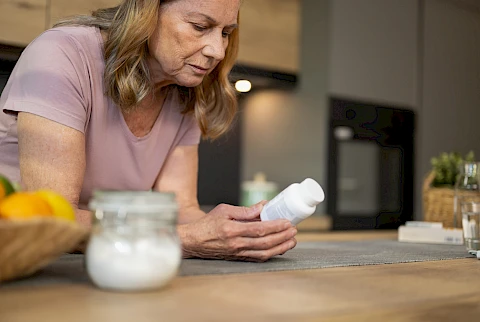
The incredible role of vitamin D in maintaining good health is undeniable. This essential nutrient helps fortify our bones, support immune function, and regulate cell growth, among other vital functions. Unsurprisingly, keeping up healthy levels of vitamin D becomes especially crucial as we age. Many seniors may find themselves falling short. Are vitamin D supplements necessary for seniors? Often, not as much as you might think.
Vitamin D and its Importance for Seniors
Vitamin D is a fat-soluble vitamin that plays a key role in several important biological functions. It assists in the absorption of calcium and phosphorous, critical minerals for bone health, and supports the immune system. Maintaining adequate vitamin D levels is essential for seniors. As we age, the risk of conditions such as osteoporosis and certain types of cancers increases, and vitamin D can play a preventative role.
Vitamin D Deficiencies in the Elderly
Unfortunately, many seniors are deficient in this vital nutrient. A combination of factors contributes to this. Our skin becomes less efficient at synthesizing vitamin D from sunlight as we age. Furthermore, seniors often spend less time outdoors. These reasons make seniors unusually prone to vitamin D deficiencies. Deficiency signs can be subtle but can include fatigue, bone pain, and muscle weakness.
The Role of Vitamin D Supplements
Given these challenges, vitamin D supplementation often becomes a practical solution. A simple vitamin D pill can help to fill the gap left by limited sun exposure and diminished dietary intake. These supplements can be invaluable in ensuring that seniors maintain robust vitamin D levels for solid bone health, a well-functioning immune system, and, potentially, reduced cancer risk. However, like any supplement, vitamin D pills should be used responsibly. Excessive intake can lead to issues such as kidney stones and heart disease. Caregivers and seniors should always consult a healthcare provider to better understand whether vitamin D supplements are necessary and how much seniors should take.
Determining if Vitamin D Pills Are Necessary
So, how do you know if vitamin D supplementation is necessary? The best starting point is a conversation with a healthcare provider. A blood test can determine if there's a deficiency that needs to be addressed. Chronic fatigue, frequent illness, bone pain, and muscle weakness are signs to look out for, but a definitive diagnosis will require a test.
Expert Opinions and Guidelines for Safe Supplementation
Experts agree that vitamin D supplementation can benefit many seniors. However, the amount needed can vary greatly from person to person. The National Institute of Health recommends a daily intake of 800 IU for adults over the age of 60, but your healthcare provider might suggest more or less depending on individual circumstances. Following your healthcare provider's advice regarding dosage is essential to avoid potential adverse effects.
We Can Help Seniors Stay Healthy
Are you or a loved one in Lake Worth, Boynton Beach, Delray Beach, or Atlantis in need of some help navigating senior health and wellness? Senior Helpers South Palm Beach is here to assist. We provide compassionate in-home care that can help seniors maintain a higher quality of life, including help with meal planning and prep that can improve vitamin D consumption. Contact us today to learn more.